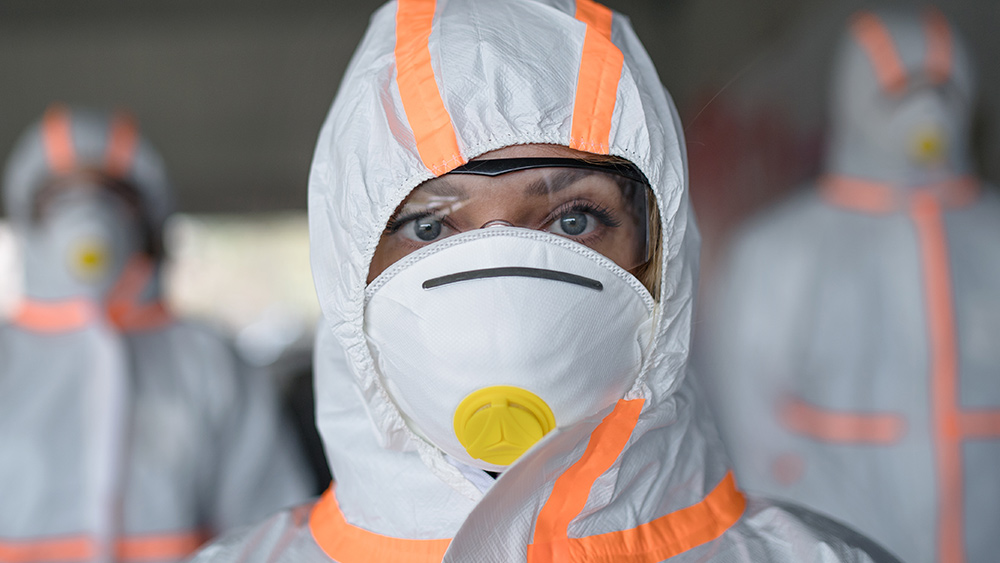Study finds causal link between COVID vaccines and mortality, confirming 1 death for every 800 jabs
A new report has estimated that COVID-19 vaccines averaged one death for every 800 injections around the world across all age groups.
This is according to
statistical analysis of mortality data from a range of Southern Hemisphere and equatorial countries. It was carried out by Correlation Research in the Public Interest, which is based in Canada, under the leadership of
University of Ottawa Lead Scientist Dr. Denis Rancourt. The researchers estimated that around 17 million people died following the rollout of the vaccine, and with 13.5 billion injections provided during the study period, it averages out to 1 death for every 800 doses.
If you take this one step further and consider the 677 million doses that were administered in America, it would mean that nearly 850,000 Americans died from the jab. However, the researchers concede the average could be lower in the U.S. because the study’s focus on the Southern Hemisphere meant that there were more people involved who received the Astra Zeneca injections that later proved to be toxic and were withdrawn.
However, the 1 in 800 figure is just an average; the risk of fatal toxicity per injection rose dramatically with age. As a result, the researchers recommended that governments “immediately end the baseless public health policy of prioritizing elderly residents for injection with COVID-19 vaccines, until valid risk-benefit analyses are made.”
Among the 17 countries spanning four continents studied were Australia, New Zealand, Singapore, Thailand, Philippines, Brazil, Colombia and Argentina. Taken together, the nations studied represent just over 9 percent of the world’s population and over 10 percent of global vaccinations.
The
paper shows reports, analysis and graphs demonstrating a temporal relationship between the vaccines and spikes in mortality from all causes in each nation. It is important to note that more than half of the countries they studied did not have a detectable rise in all-cause mortality following the World Health Organization’s global pandemic declaration in March of 2020; it was only when the vaccines and boosters were rolled out that things took a turn for the worst.
The researchers said that after their previous research showed an association between all-cause mortality spikes and mass vaccination in the U.S., Canada, Israel, Australia and India, they decided to look at other countries for which similar data was available to determine if they experienced the same type of synchronicity.
Excess mortality is a term for the number of deaths recorded due to all causes during a crisis that goes beyond the number of deaths seen in a given place at that time of year under normal conditions.
To control for factors such as seasonality to allow of the fact that deaths from problems such as respiratory illness generally peak during the winter months, they confined their research to countries that lack seasonal fluctuations, such as equatorial counties, and those whose vaccines were rolled out in summer.
Excess mortality didn't rise until after vaccine rollouts
Interestingly, the paper reported that nine out of the 17 countries examined did not experience detectable excess mortality in the year between the time the pandemic was announced and that country’s first vaccine rollout. In other words, Philippines, Singapore, New Zealand, Australia, Malaysia, Uruguay, Paraguay and Thailand only saw excess mortality after their vaccines were rolled out.
The authors believe that the evidence they gathered points to a causal link between the jabs and high mortality rates, citing adverse event monitoring, studies exploring vaccine-induced pathologies, payouts from vaccine injury compensation programs, and autopsy studies.
They also discounted some common “alternative explanations” that have been put forth by those who can’t accept the link between
vaccines and mortality, such as the changes being due to heat waves, conflicts, earthquakes and the emergence of Covid variants.
They stated: “If vaccines prevented transmission, infection or serious illness, then there should be decreases in mortality following vaccine rollouts, not increases, as in every observed elderly age group subjected to rapid booster rollouts.”
Sources for this article include:
KarenKington.Substack.com
ChildrensHealthDefense.org
 Parler
Parler Gab
Gab










